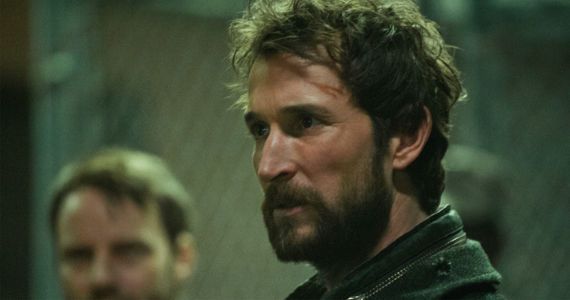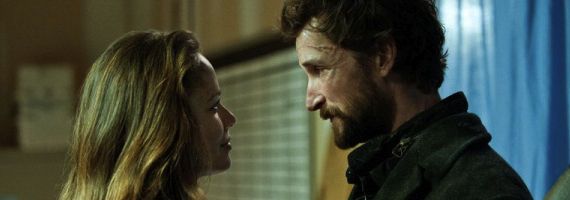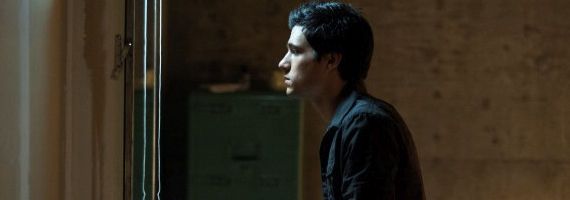For a 10-episode season, the second round of Falling Skies sometimes felt overlong. It's likely due to the effort by the writers to convey the emotional and physical strain that war can have on those engaged in battle – especially for the guys who seem to be horribly outmatched. But despite its gung-ho, pro-military attitude, Falling Skies isn't, and can never be, your average war drama. It must (for one more season at least) perpetuate the climate of conflict and strife by sometimes tangentially telling the story of those fighting the war – which means not having them in it all of the time.
For the most part, that was the idea behind season 2. The writers set out to give the members of the 2nd Mass a goal that occupied the nebulous middle between the war's beginning and its eventual conclusion (whatever that outcome may be). Though the goal was ultimately unfulfilling for Tom Mason (Noah Wyle) and the rest of the 2nd Mass, that's often the way the cookie crumbles in science fiction. Whether or not the prospect of a new United States government or some secure zone was necessary at this point in the series is debatable, but it certainly has gone and provided storytelling parameters on which the series can build upon next season and beyond (if a fourth season proves to be in the cards).
For all the good the promise and eventual reveal of Charleston did for the 2nd Mass, it was a storyline that came with a healthy dose of ups and downs. On one hand, given the possibility of hundreds, maybe even thousands of survivors waiting for them in this somehow still productive city, Falling Skies didn't shy away from cutting a lot of its supporting characters loose. This added some much-needed gravity to the situation, and created the kind of atmosphere that was appropriate for the show: One where the characters' survival was made all the more spectacular due to the overwhelming sense it could be catastrophically over at any moment. So after losing Jimmy (Dylan Authors), Jamil (Brandon Jay McLaren) and Boon (Billy Wickman), the stakes for season 2 were appropriately raised. However, maintaining that element of drama has not been the show's strong suit.
Falling Skies has a great handle on its basic premise, there's no doubt about that, but the show often struggles to strike a suitable balance between intensity and personal drama. It's a problem the series is able to overcome during the course of the season, where the knowledge that more action will come the following week can typically lessen the sting of weaker episodes like 'Compass' and 'Love and Other Acts of Courage,' but where the season finale is concerned, piling on personal, dramatic elements don't even out a lackluster and rushed episode.
The season's penultimate episode 'The Price of Greatness' left audiences to deal with the possibility of the 2nd Mass inadvertently inciting a coup – which saw the master of inaction, Arthur Manchester (Terry O'Quinn), supplanted by Gen. Bressler (Matt Frewer). As 'A More Perfect Union' quickly establishes, the people of Charleston have essentially replaced avoiding aliens at all costs will killing all aliens – regardless of such silly notions as rebellions and potentially advantageous infighting. Bressler then becomes the stock military villain who detains Tom, Weaver (Will Patton), and many other 2nd Mass fighters for not agreeing that martial law is the best course of action. After spending so much time setting up Manchester as a somewhat ambiguous obstacle (neither villain nor ally, but a problem nonetheless) Falling Skies tosses him in a cage and essentially forgets about him.
Following that, Bressler proves to be nothing short of a pushover with a bloodlust for skitters (considering he watched one kill his son) that once more throws a wrench into the possibility of Red-Eye's rebellious group being of any service to the human survivors. The frailty of the chain of command, wherein Bressler can give the order to slaughter Red-Eye and his skitters and deharnessed human companions, and then allow Weaver to directly disobey an order and plan an attack on a new weapon the aliens are building is a convenient way of insinuating that conflict exists, without finding a plausible way of resolving the clash. As it stands, 'A More Perfect Union' goes from coup, to rebellion to raid on experimental alien technology almost in the blink of an eye. It's so quick and seemingly random, in fact, that one hardly has time to register the fact that Anne (Moon Bloodgood) is now carrying Tom's child.
The second season seemed to be at war with itself; on one hand, it was eager to develop the relationships of the survivors, and explore the possibility of what the future of the post-invasion world might look like – both personal and in the larger societal sense. It's a notion the series touched upon when Tom questioned where all the formerly harnessed kids would fit in, once and if the war was ever over. With the prospect of bringing a child into the world now a certainty, Tom and Anne have to confront the question of whether or not that is the moral thing to do – it's a deeper inquiry than one might expect from Falling Skies, but where the series frequently stumbles in terms of its depiction of actual human interaction, the character's apprehension about the future is an aspect the program would do well to develop further.
On the other hand, however, the finale still has the issue of creating some sense of closure to the skitter rebellion and Ben's (Connor Jessup) need to be a part of it. The majority of that issue is taken care of with Bressler's men on skitter-killing duty, while the rest is apparently handled during the assault on the alien's weapon.
None of the characters – harnessed or otherwise – have really questioned what the rebels' end game was. Tom notices the weapon pointing to the skies and comments that the earth no longer has much of an air force, but brushes off the response about the exact purpose for which the weapon is really intended. The alien's – Karen (Jessy Schram) and the overlord – actually seem more inquisitive about how Tom and the 2nd Mass came to know about the weapon in the first place. After Karen engages in some torture, which involves an alien cattle-prod, making out with Hal (Drew Roy) and breaking the news to Tom about Anne's pregnancy, the rebellious skitters arrive so that Tom can finally best a surprisingly well-armed overlord in hand-to-hand combat and the 2nd Mass can destroy the weapon.
The aftermath, however, is swift, and its ramifications little more than a resetting to the status quo. Red-Eye is dead, which puts Ben back in league with the 2nd Mass, Bressler allows for civilian rule as long as it's not Manchester who is in charge and Tom and Anne wait for their baby. Perhaps the eagerness to get back to the status quo was so the writers could set up next season's conflict in the form of Hal being bugged (literally) and the arrival of another, heretofore unseen alien that the weapon was clearly intended for.
'A More Perfect Union' was hardly more than a lead-in to season 3. In fact, the season finale was so eager to leave the audience guessing as to the identity and purpose of the new alien, it had little time or concern left for an actual conclusion to season 2. What is concerning is that even with the primary storyline, the question of deharnessed children, a skitter rebellion and a fragile, coup-prone new government to deal with, the writers still felt it time to introduce another new element to the series. How this will turn out is anyone's guess, but in the interest of moving forward, perhaps fans might like to see one storyline reach a satisfying conclusion before another enters the fray?
-
The third season of Falling Skies will air on TNT sometime in 2013.



